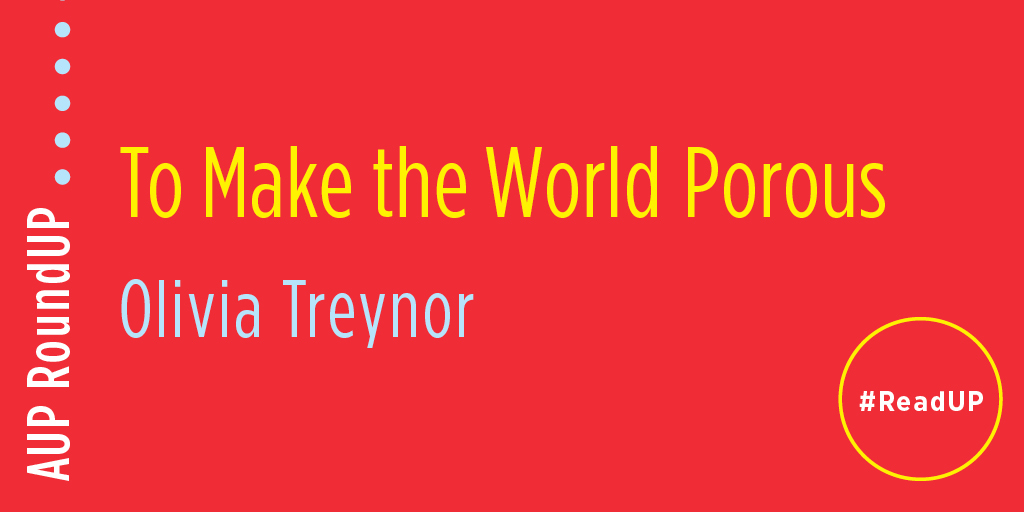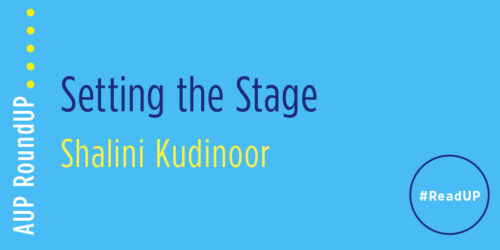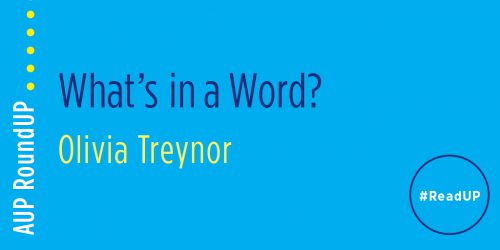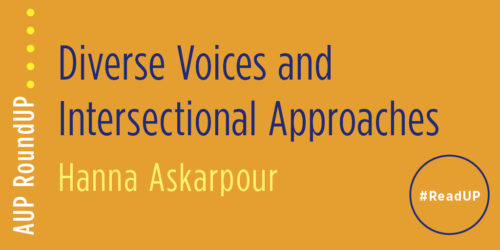To Make The World Porous: An AUP RoundUP
By Olivia Treynor

This week, I read blog posts from other academic presses through the lens of “opening” and all the things that can mean.
TO LOOSEN THE BOUNDS OF THINGS…
I arrived at this post’s project after reading Hilda Raz’s lyrical guest post in the UNP blog, in which Raz writes:
And here’s the truth—I write to loosen the bounds of things. To make the world porous. To unload and unlock sensory information. To engage the spirit. To see through the scrim to the light. To fix each moment. To merge with my subject. To transgress. To repent. To object. To find the muscle attachment in the shell of the oyster.
This work of the author that Raz describes—“to loosen the bounds of things”—seemed to me an especially illuminating approach to working with scholarly texts. Something I love about academia is its ability to expose the invisible architecture of the world we live in, and Raz’s language of expanding and dislodging the known world is an apt articulation of the feeling knowledge provides us with.
TO TRANSGRESS…
The work of broadening worldviews feels topical as we emerge from Pride Month, which was founded by LGBTQ+ groups attempting to expand what the dominant culture deems worthy of celebration and expression. LGBTQ+ scholars occupy a marginalized status and, from their divergent social and cultural vantage point, often expose the unseen in society. From Pride Month, I arrived at this Q&A with C. Riley Snorton and Jennifer Devere Brody, which notices the unique perspective that queer folks have in a heteronormative society: “I have always thought that queer studies (and Black studies and trans studies, for that matter) can be useful for understanding any sort of phenomena,” Snorton writes, “that is that it is a lens for thinking about power, geography, representation, race, feeling, gender, capital, etc., etc.” Queer studies offers a new mode of thinking because LGBTQ+ people have historically been seen as transgressive or other. Using Snorton’s logic, this perceived transgression and subsequent alienation has allowed scholars of queer/Black/trans studies to have a distinct understanding of the world. This new perspective can be illuminating, and, as Pride in its month-long celebration of queer resistance demonstrates, liberating.
UNIVERISTY OF CALIFORNIA PRESS
TO SEE THROUGH THE SCRIM TO THE LIGHT…
The “food politics powerhouse” Marion Nestle gave a fascinating virtual talk about the ways in which the food we eat is political. From coronavirus’s impact on the meat industry to hunger in America, Nestle proves the deeply political dimension of agriculture in the United States. On her new book, Nestle says, “One major theme is that the food system is flawed, another is that food is political, and another is that advocacy is absolutely critical if we’re going to get the kind of food system we need.” Here, Nestle urges us to grapple with the volatile and deeply consequential nature of how food is produced and distributed in this country, and in doing so, she destabilizes the presumption that any aspect of our culture is apolitical or stable.
THE UNIVERSITY OF CHICAGO PRESS
TO OBJECT…
Sujit Sivasundaram, author of Waves Across the South: A New History of Revolution and Empire, begins his Q&A by recounting a commonly told narrative: “Usually, the Age of Revolutions is an Atlantic story. . . . These events are taken as a pivotal origin point for our modern condition . . . [and] islands and islanders are often forgotten in world histories due to the tyranny of larger neighbors who have dominated historical attention. ” Sivasundaram objects to this history: “I want to rectify this,” Sivasundaram writes, “and to see the Age of Revolutions from the perspective of these communities who were attentive to the shifting landscape of the period, through the arrival of news, weapons, ideas, or refugees across the water in this period.” In writing Waves Across the South, Sivasundaram says, he intentionally refused writing a comprehensive book as a “critique of global histories which aim to be totally comprehensive.” The form of his work is an objection to the notion that history is linear, following a “rise and fall” that can be condensed into a single narrative.
TO ENGAGE THE SPIRIT
Reading these various inquiries into corners of our culture, I myself feel newly ready to disrupt the normal, probe the unquestioned. I think Raz in her writing, along with arguably all writers, academics, and artists, is asking us to engage deeply with the world. This week, Sivasundaram asked me to be curious about how history is written; Nestle proposed that even the most seemingly benign aspects of our life can be the subject of activism; Snorton recognized the ubiquitous needfulness of marginalized perspectives; and Raz gave language to what all of these texts equip us with, if only we’re open to them. Until next time.








